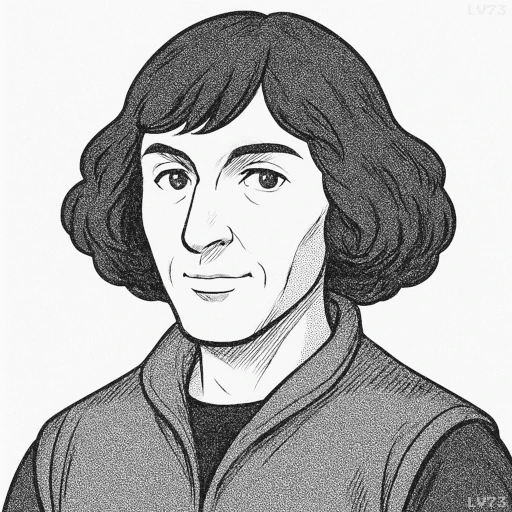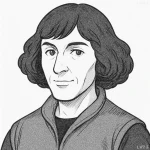“I shall now recall to mind that the motion of the heavenly bodies is circular, since the motion appropriate to a sphere is rotation in a circle.”

- February 19, 1473 – May 24, 1543
- Polish
- Astronomer, Mathematician, Founder of the Heliocentric Theory
table of contents
Quote
“I shall now recall to mind that the motion of the heavenly bodies is circular, since the motion appropriate to a sphere is rotation in a circle.”
Explanation
Copernicus reaffirms the classical belief that celestial bodies move in circular paths, drawing from the ancient notion that a sphere’s most “natural” motion is circular rotation. This idea, inherited from Plato and Aristotle, held that the heavens—being perfect and divine—must operate according to the most perfect geometric shape: the circle. Copernicus adopts this assumption as a guiding principle in modeling planetary orbits, reflecting the enduring influence of ideal forms in Renaissance science.
Though we now know that planetary orbits are elliptical (as Kepler later proved), Copernicus’ reliance on circular motion marked a critical advancement. Unlike the increasingly convoluted epicycles used in the Ptolemaic system, his circular orbits around the Sun introduced a simpler and more unified structure, even if not entirely accurate. His insistence on circular motion helped maintain mathematical elegance while shifting the cosmic framework from geocentrism to heliocentrism.
In modern terms, this quote illustrates how scientific models often begin with idealized assumptions, which are later refined by more precise data. Copernicus’ belief in circular motion was not a flaw, but a necessary step toward deeper understanding. It reminds us that progress in science is iterative—built on approximations that bring us closer to truth with each generation of inquiry.
Would you like to share your impressions or related stories about this quote in the comments section?

